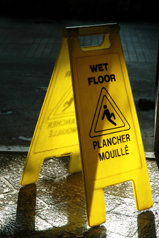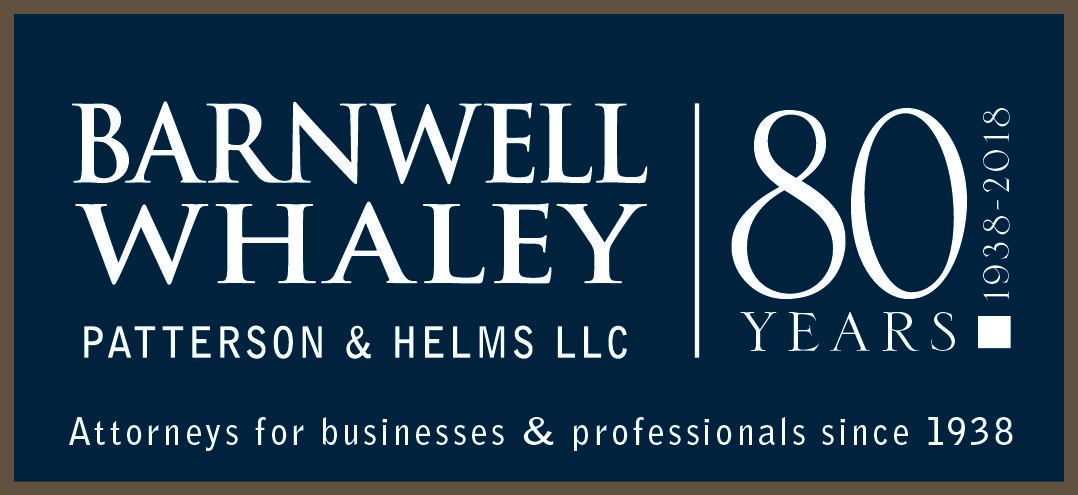
Basic Premises Liability Law for the Restaurant and Hospitality Industry
This article was originally published in the Wilmington Business Journal
North Carolina business owners in the restaurant and hospitality industry face potential legal exposure if a patron is injured while on their property.
This can be a fairly commonplace occurrence, such as when a bar patron slips on a spilled drink, or a restaurant guest stumbles over the leg of a table or chair. Often, such events do not result in any injury to the guest. However, when injuries do occur, they can create potential liability for business owners.
According to North Carolina law, owners and occupiers of land have “the duty to exercise reasonable care in the maintenance of their premises for the protection of lawful visitors” (Nelson v. Freeland, 349 NC 615, 507 SE2d 882, 1998). While this statement of law seems fairly straightforward, it raises several important considerations.
First, the duty applies to both owners and occupiers of land. Usually, the commercial lease terms define the area(s) for which the lessee is responsible, as well as any common areas the landlord may be required to maintain. It is important for hospitality industry business owners to understand the specific areas of the property for which they are responsible.
Next, this legal duty extends only to “lawful visitors.” Although generally speaking, patrons of an establishment are there for a lawful purpose, that is not the case with trespassers, so determining why an injured person was on the property in the first place is important.
Less straightforward is determining what constitutes “reasonable care.” North Carolina law does not require property owners/occupiers to completely ensure the safety of their guests against any and all possible dangers. Instead, the owner/occupier is responsible for dangerous conditions which they or their agents create.
An example of this might be a server spilling a drink, which later causes a customer to slip. The owner/occupier is also responsible for failing to remedy dangerous conditions about which they know or should know through reasonable inspection (see Ross v. Sterling Drug Store, 225 NC 226, 34 SE2d 64, 1945). Therefore, periodic walk-throughs and prompt attention to any potentially hazardous condition, particularly in areas with high-volume foot traffic, are a good idea.
A puddle of water that is completely obvious during lunch at a well-lit restaurant, for example, might not be so obvious on the floor of a tavern at midnight, especially when one might anticipate bar patrons to have their judgment impaired by alcohol.

North Carolina’s law does not require a property owner/occupier to warn of an obvious danger when a guest already knows about it. For instance, during the recent ice storms in the Eastern Carolinas, patrons of many establishments in the affected areas probably knew ice and snow-covered parts of the property. In those instances, the premises owner may not have any duty to warn of such obvious dangers (see Von Viczay v. Thoms, 140 NC App 737, 538 SE2d 629, 2000).
Still, property owners/occupiers should take reasonable steps to correct or warn of a dangerous condition when the surrounding circumstances make it reasonable to do so. A puddle of water that is completely obvious during lunch at a well-lit restaurant, for example, might not be so obvious on the floor of a tavern at midnight, especially when one might anticipate bar patrons to have their judgment impaired by alcohol. The better practice is to remedy any potentially hazardous condition as quickly as feasible.
Accidents do happen in bars, restaurants and hotels despite everyone’s best efforts. Nevertheless, the business owner’s exposure can be limited by routine inspections of the property and prompt correction of any condition that could potentially cause a fall or other accident.

Christopher M Hinnant is a trial lawyer and member of Barnwell Whaley Patterson & Helms PLLC’s Wilmington, NC office. Hinnant is licensed in both North and South Carolina, and concentrates his practice in civil litigation, including dram shop liability, premises liability and restaurant and hospitality law. He has handled cases in Virginia, North Carolina and South Carolina. A significant portion of his cases involves catastrophic injury and wrongful death. Hinnant also has significant experience with medical malpractice matters, complex commercial litigation and construction matters. To contact Hinnant, call (910) 679-4329 or email him at chinnant@barnwell-whaley.com.




